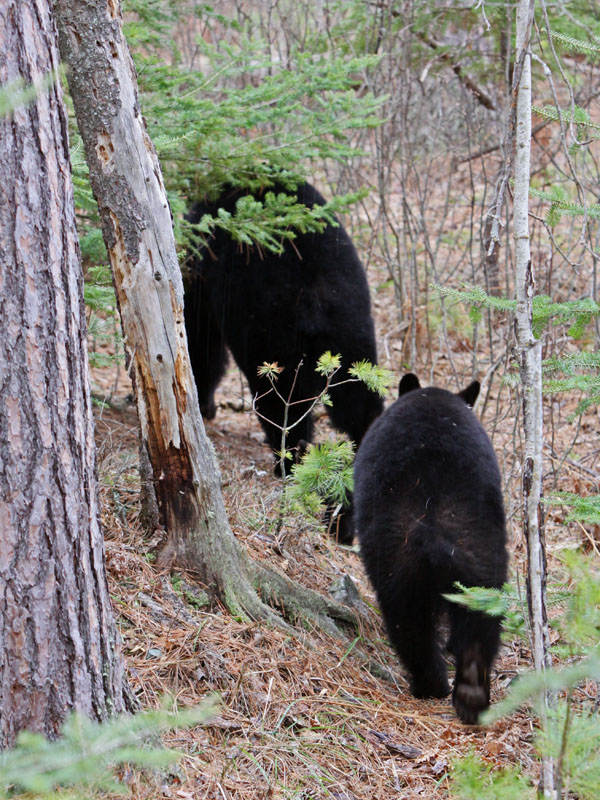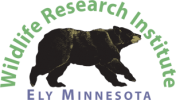No bear news
 It’s an inside day as technicians move forward on Lucky and Honey’s Den Cam, Sue travels to Maine, and we mull over your ideas from the survey. Lynn is also writing an addendum to the response he mailed to the DNR yesterday. The writing just doesn’t end.
It’s an inside day as technicians move forward on Lucky and Honey’s Den Cam, Sue travels to Maine, and we mull over your ideas from the survey. Lynn is also writing an addendum to the response he mailed to the DNR yesterday. The writing just doesn’t end.
This idea came from a Lily fan today. There are Lily fans across North America who see familiar bears often enough to gather data on dates of family break-up within a few days. We’ve gathered considerable data on family break-up for bears in NE Minnesota, but information from other parts of black bear range would add depth to the study. If Lily fans would seize opportunities to record their observations we might be able to see patterns. We would need the date the mother was last seen with her yearlings, and the date she or the yearlings were next seen alone. In addition to the dates we would need your state and the nearest city. Also, notes on any behaviors observed or other bears present would be helpful. With enough observations we might see regional patterns. If the dates are about the same across their range (eastern deciduous forest, boreal forest, western mountains, etc.), that would be as interesting as if dates differ among regions. We’re not aware of much research on this subject, and Lily fans might come up with something.
We think of family breakup occurring just before or during mating season, but the timing of mating varies from region to region. Where bears have to fatten in summer, like in northeastern Minnesota, break-up is in May or early June and mating is completed before berries ripen so bears can concentrate on eating in summer to get fat enough to maintain pregnancies. Mating season occurs later in areas where there are abundant fall mast crops n(acorns, hickory nuts, beechnuts) than in areas where fall foods are scarce and bears must fatten in summer (berries, hazelnuts). There is reason to think family break-up might be later in those areas as well.
We’ll be glad to see the Volunteer Applications roll out in January. We keep thinking of ways Lily fans can help in other ways.
Thank you for all you do.
—Lynn Rogers and Sue Mansfield, Biologists, Wildlife Research Institute and North American Bear Center
